Tools Required
| • | J 38778 Door Trim Pad and Garnish Clip Remover |
| • | J 37096 Flywheel Holder |
Removal Procedure
- Disconnect the battery negative cable. Refer to Battery Negative Cable Disconnection and Connection in Engine Electrical
- Remove the throttle body air inlet duct. Refer to Air Cleaner Assembly Replacement in Engine Controls - 3.4L or Air Cleaner Assembly Replacement in Engine Controls - 3.8L
- Disconnect the electrical connectors from the transaxle.
- Remove the transaxle range selector cable retainer from the cable.
- Disconnect the transaxle range selector cable from the transaxle.
- Remove the transaxle wiring grounds from the transaxle.
- Remove the upper transaxle bolts (3,4,5) and the stud (2).
- Install the engine support fixture. Refer to Engine Support Fixture in Engine Mechanical - 3.4L or Engine Support Fixture in Engine Mechanical - 3.8L
- Raise and support the vehicle. Refer to Lifting and Jacking the Vehicle in General Information.
- Remove the front wheels. Refer to Tire and Wheel Removal and Installation in Tires and Wheels
- Use the J 38778 in order to remove the push-in retainers from the left engine splash shield.
- Remove the left engine splash shield from the vehicle.
- Use the J 38778 in order to remove the push-in retainers from the right engine splash shield.
- Remove the right engine splash shield from the vehicle.
- Remove the frame from the vehicle. Refer to Frame Removal in Frame and Underbody.
- Remove the starter motor. Refer to Starter Motor Replacement in Engine Electrical
- Use J 37096 in order to gain access to the torque converter bolts and prevent the flywheel from turning.
- Remove the torque converter bolts.
- Disconnect the transaxle oil cooler pipes from the transaxle. Refer to Automatic Transmission Oil Cooler Pipes Replacement .
- Remove the wheel drive shafts from the transaxle. Refer to Wheel Drive Shaft Replacement in Wheel Drive Shafts.
- Disconnect the vehicle speed sensor electrical connector. Refer to Vehicle Speed Sensor Replacement .
- Position a transmission jack under the transaxle and secure the transmission jack to the transaxle.
- Remove the transaxle brace. Refer to Transmission Brace Replacement .
- Remove the lower transaxle bolt (6) and stud (1).
- Remove the transmission from the vehicle.
- Transfer all necessary parts as needed.
- Flush the transmission cooler and lines. Refer to Transmission Fluid Cooler Flushing and Flow Test .
Caution: Before servicing any electrical component, the ignition and start switch must be in the OFF or LOCK position and all electrical loads must be OFF, unless instructed otherwise in these procedures. If a tool or equipment could easily come in contact with a live exposed electrical terminal, also disconnect the negative battery cable. Failure to follow these precautions may cause personal injury and/or damage to the vehicle or its components.
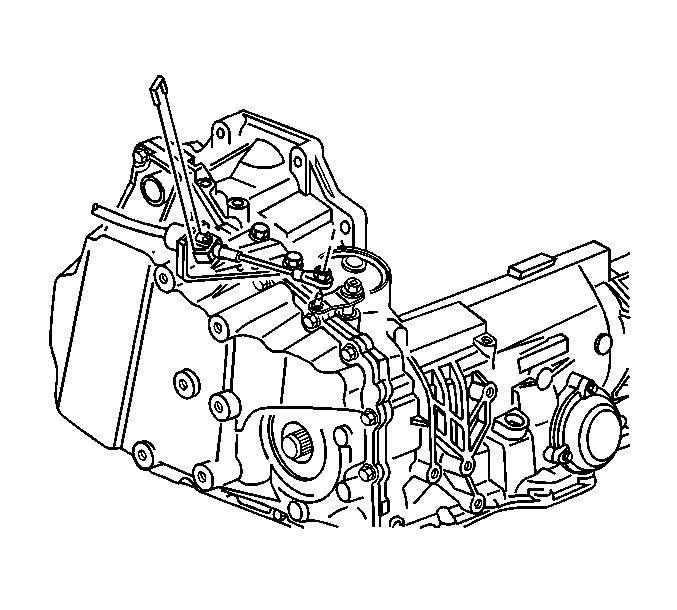
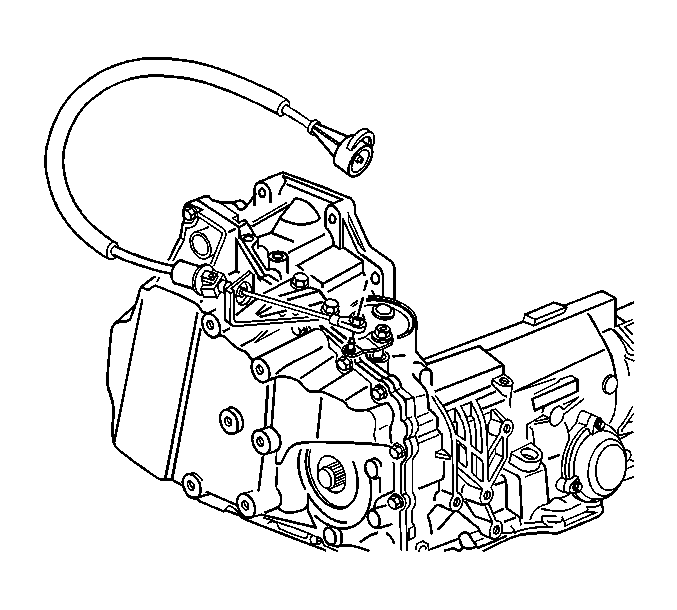
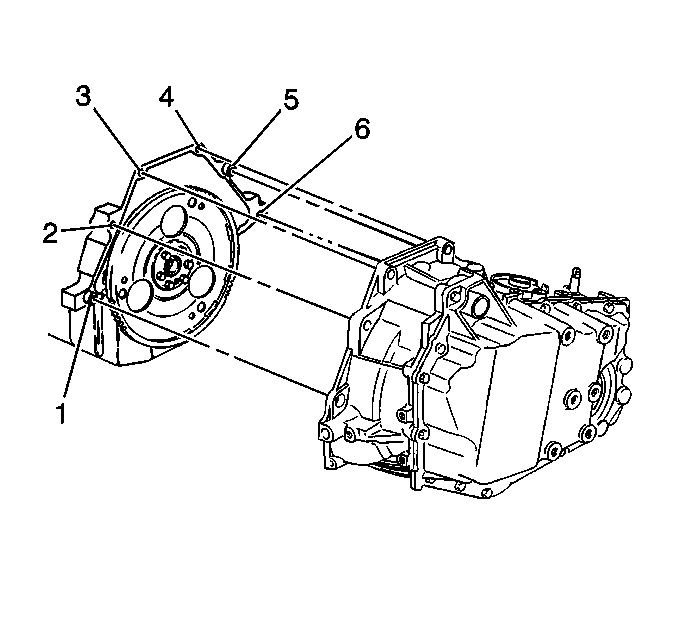
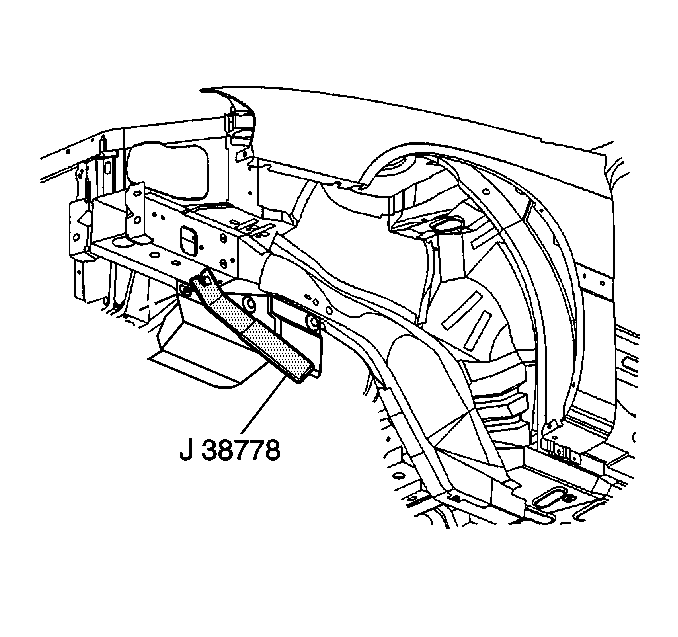
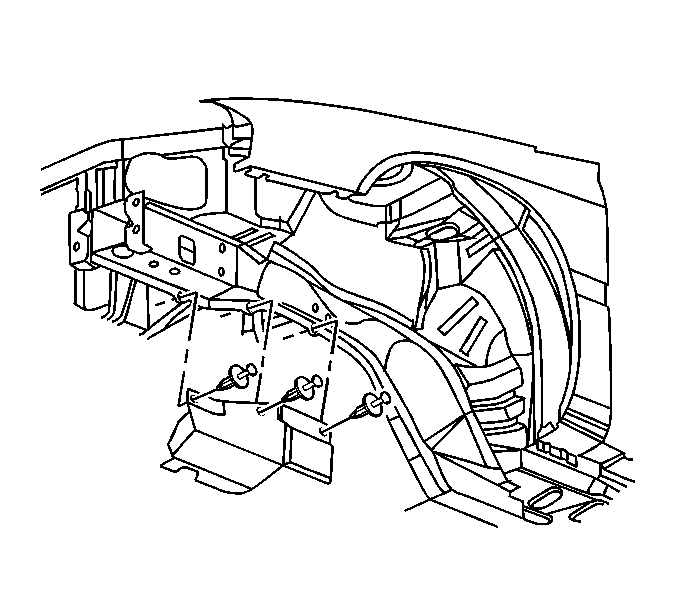
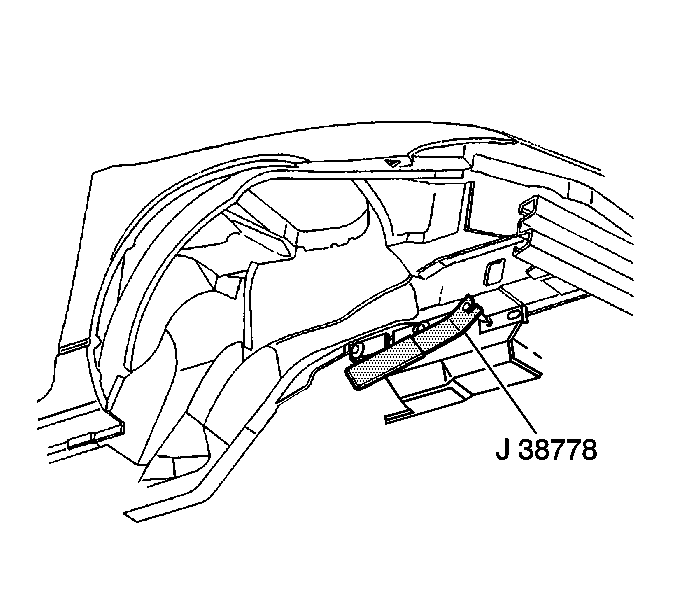
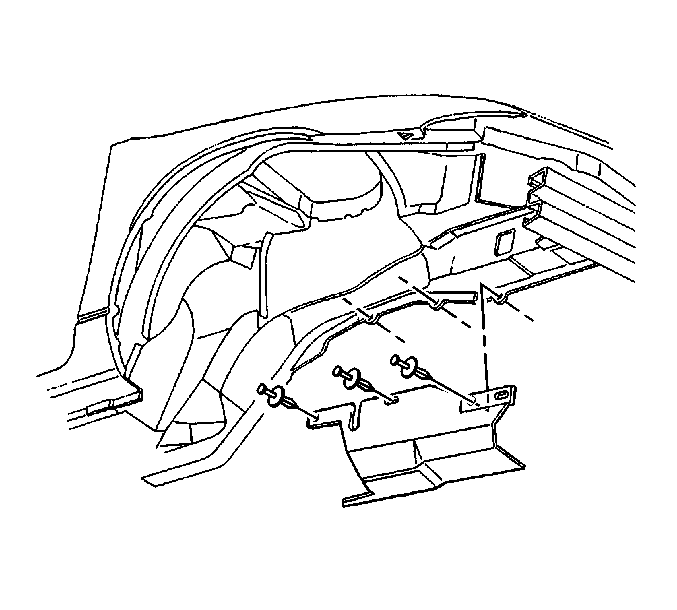
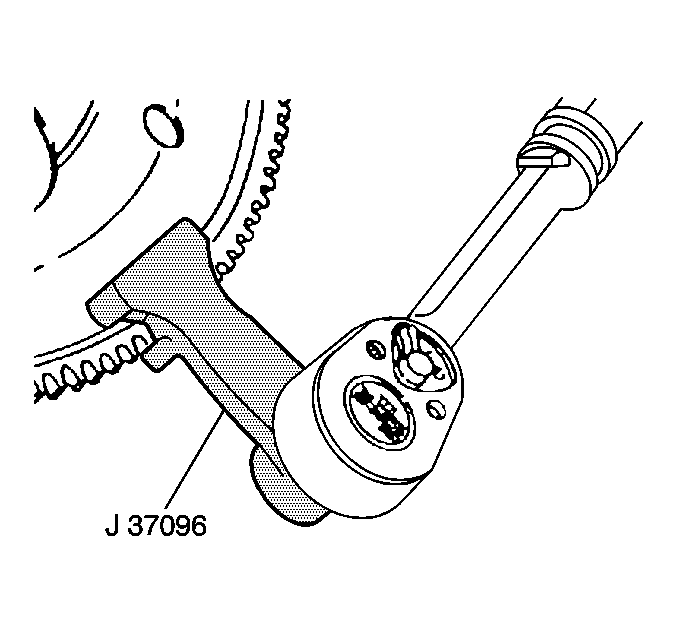
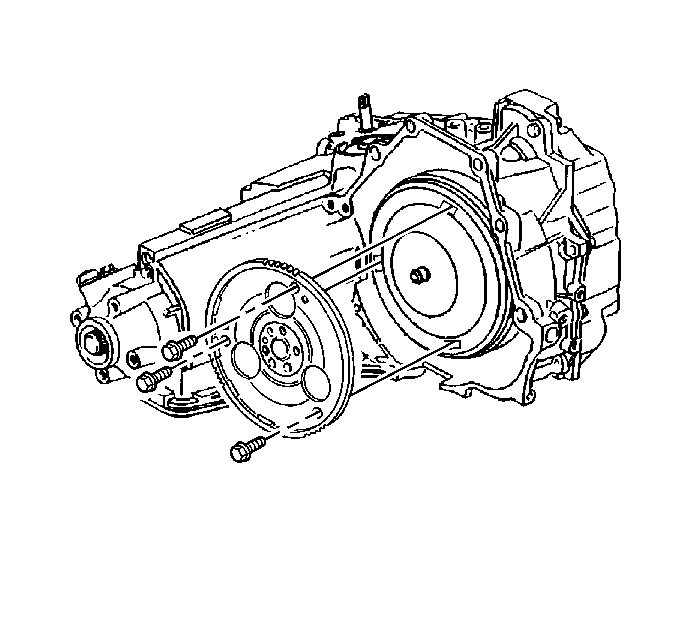
Important: Position and secure the wheel drive shafts out of the way.
Important: Ensure the transmission jack is properly secured to the transaxle.

Installation Procedure
- Position the transaxle onto a transmission jack and secure the transaxle to the transmission jack.
- Install the transaxle into the vehicle.
- Install the lower transaxle bolt (6) and the stud (1).
- Install the transaxle brace. Refer to Transmission Brace Replacement .
- Use J 37096 in order to gain access to install the torque converter bolts and prevent the flywheel from turning.
- Install the torque converter bolts.
- Install the wheel drive shafts into the transaxle. Refer to Wheel Drive Shaft Replacement in Wheel Drive Shafts.
- Install the transaxle oil cooler pipes to the transaxle. Refer to Automatic Transmission Oil Cooler Pipes Replacement .
- Install the starter motor. Refer to Starter Motor Replacement in Engine Electrical.
- Install the frame to the vehicle. Refer to Frame Removal in Frame and Underbody.
- Connect the vehicle speed sensor electrical connector. Refer to Vehicle Speed Sensor Replacement .
- Install the right engine splash shield.
- Install the left engine splash shield.
- Install the front wheels. Refer to Tire and Wheel Removal and Installation in Tires and Wheels
- Lower the vehicle.
- Remove the engine support fixture. Refer to Engine Support Fixture in Engine Mechanical - 3.4L or Engine Support Fixture in Engine Mechanical - 3.8L
- Install the upper transaxle bolts (3,4,5) and the stud (2).
- Install the transaxle wiring grounds to the transaxle.
- Install the electrical connectors to the transaxle.
- Install the transaxle range selector cable to the transaxle range selector cable bracket.
- Install the automatic transaxle range selector cable retainer to the cable
- Connect the transaxle range selector cable to the range selector manual lever.
- Install the throttle body air inlet duct. Refer to Air Cleaner Assembly Replacement in Engine Controls - 3.4L or Air Cleaner Assembly Replacement in Engine Controls - 3.8L.
- Connect the battery negative cable. Refer to Battery Negative Cable Disconnection and Connection in Engine Electrical
- Fill the transaxle with automatic transmission fluid. Refer to Transmission Fluid Check .
- Inspect for automatic transmission fluid leaks. Refer to Fluid Leak Diagnosis .
- Inspect for proper completion of the repairs. Refer to Road Test .
- Perform a front end alignment. Refer to Wheel Alignment Measurement in Wheel Alignment.
- Reset the TAP values. Refer to Adapt Function .
Important: Ensure the transaxle is secured properly to the transmission jack.
Notice: Refer to Fastener Notice in the Preface section.

Tighten
Tighten the lower transaxle bolts and the stud to 75 N·m (55 lb ft).


Tighten
Tighten the torque converter bolts to 63 N·m (46 lb ft).



Tighten
Tighten the upper transaxle bolts and the stud to 75 N·m (55 lb ft).


Notice: Do NOT overfill the transaxle. The overfilling of the transaxle causes foaming, loss of fluid, shift complaints, and possible damage to the transaxle.
Important: It is recommended that transmission adaptive pressure (TAP) information be reset.
Resetting the TAP values using a scan tool will erase all learned values in all cells. As a result, The ECM, PCM or TCM will need to relearn TAP values. Transmission performance may be affected as new TAP values are learned.